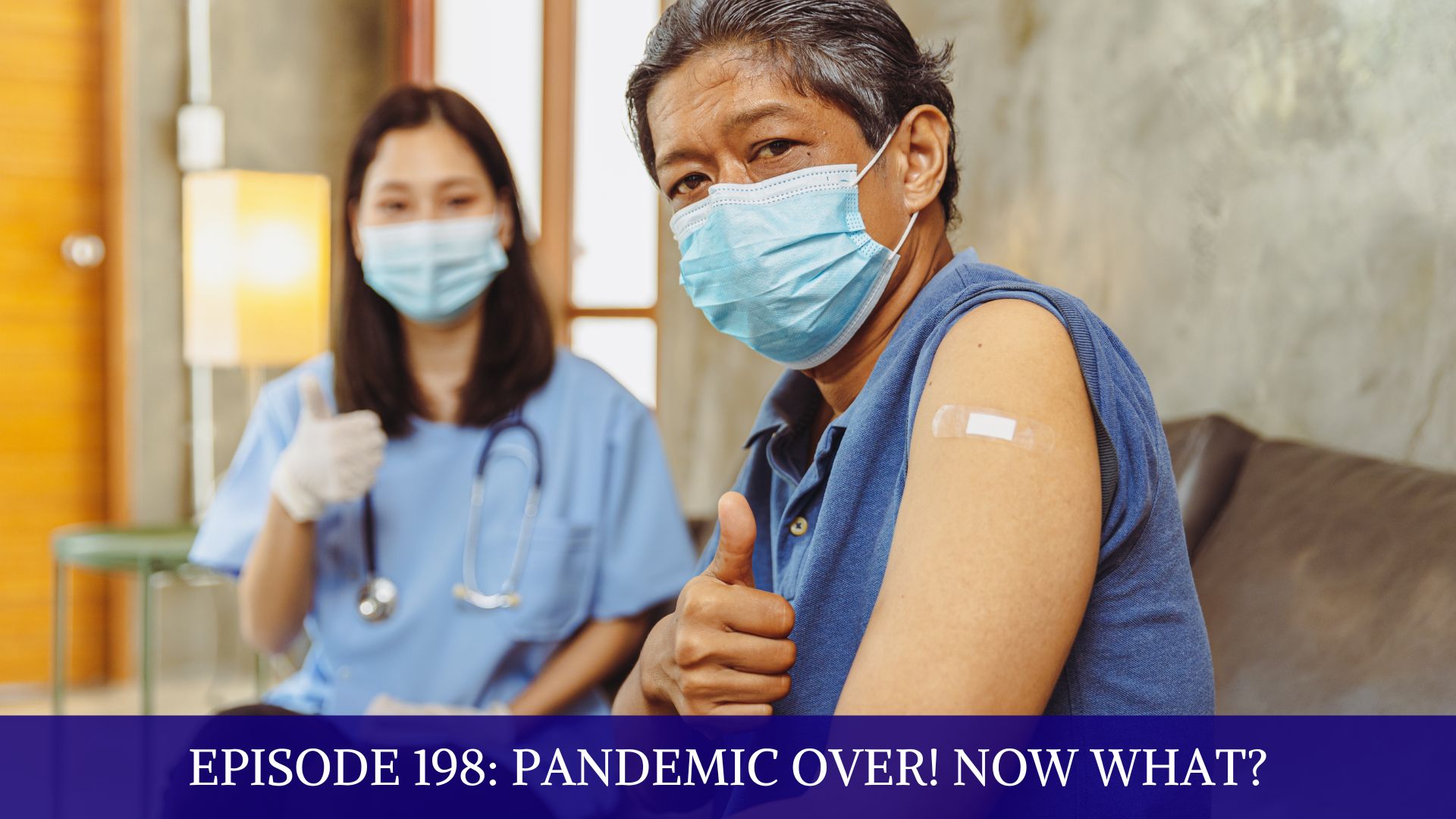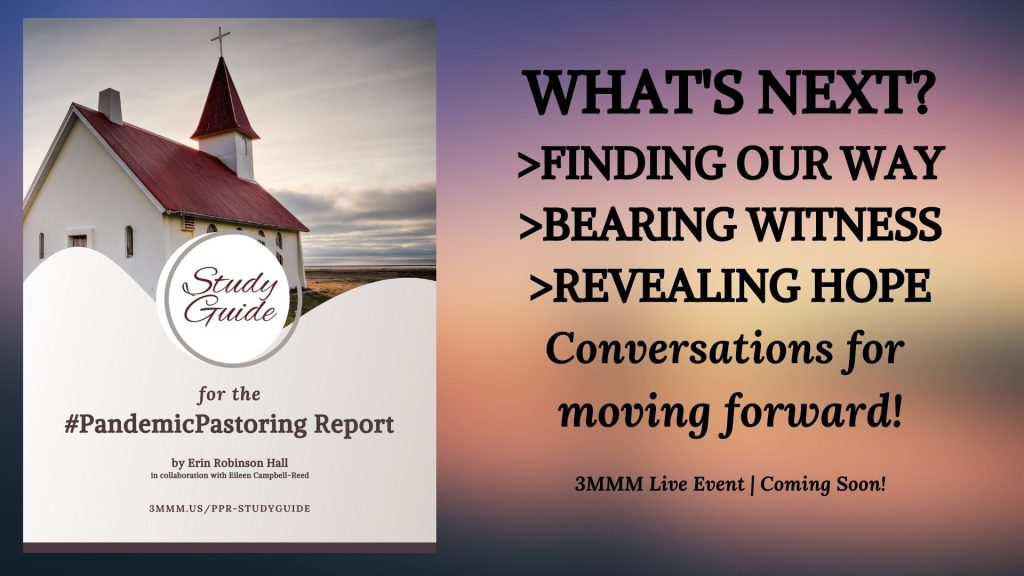On May 5 the United Nation World Health Organization declared the Covid-19 global health emergency / pandemic ‘over’! Now what?
Well, not so fast. It’s more complicated than that. Even the head of the United Nations says so. The threat is subsiding, but far from gone. How will churches and faith groups find our way in the complex new reality?
It is therefore with great hope that I declare COVID-19 over as a global health emergency.
~ Tedros Adhanom Ghebreyesus
UN General Director
Covid-19 remains at threat
First off the coronavirus is still infecting and killing people globally. The severity of the emergency may be downgraded. Nevertheless, it remains a threatening emergency for many people.
For instance, we know that people with disabilities, chronic illnesses, and immune disorders still live with a much more serious and deadly threat from Covid-19. For them the game is not pandemic over. What they need is ongoing, thoughtful attention and care. They need those of us who are temporarily able-bodied (someday all our bodies will fail) to prioritize their needs in our everyday living. We need to choose small things that do not harm us and may save their lives. For example we need to continue basic hygiene and health safety, measures like hand washing, covering sneezes, and masking when ill. We all need to ask what vulnerable folks need.
We also have no idea what the effects of long-Covid are. Nor do we know what the long-term effects of short bouts with Covid may have on any of us. Convenience and instant gratification drive so many of our everyday decisions. It’s time (past time) to slow down our thinking, consider long-term effects, and prioritize needs of the vulnerable among us. It can be a lot like curb cuts. The changes to sidewalks were designed for people in wheelchairs, yet they benefitted babies in strollers and their grown ups, walkers and joggers, people on bikes and skateboards, and anyone with mobility challenges.
When we prioritize the needs of the most vulnerable people among us, the results often benefit everyone more evenly and universally.
What can churches and faith-based groups learn from this?
Jesus taught followers to “let the little children come to me.” And he also taught, “Whoever welcomes the least among you, welcomes me.” And Jesus called on followers to, “love God with all your heart, mind, soul, and strength, and love your neighbor as yourself.” These and many more teachings of Christian faith, urge and invite us to prioritize love. And that love is a mutual, a love that emphasizes the well-being of neighbors (and even enemies) alongside our love for God and for ourselves.
As we are finding our way in this post-pandemic world, where the coronavirus and many other diseases and dangers threaten well-being of our neighbors, we need to ask new and better questions.
How shall we be church in this new era of ministry? What does it mean to love God and neighbors (and even our enemies) and ourselves in ways that appreciate the new realities? How might we renew our larger purposes?
We want to help you have just such conversations. So we put together a study guide to help you and your congregation come together and explore how you are going to find your way in a changed world. It is not enough to say, “Well, we are just going to keep doing our mission and follow God’s call.” We need to consider all the changes that have reshaped the world and our faith communities.
We are planning two live events in the coming weeks. And we want you to join us for these important conversations. The event comes as a bundle with your own set of materials for the #PPR Study Guide, so you can lead it in your setting. Watch for an email later this week with details!
“Deep Scars”
Beyond the physical and health impact of the Covid-19 pandemic, other deep political, economic, and human trust scars also remain. United Nations General Director Tedros Adhanom Ghebreyesus says, “These scars must serve as a permanent reminder of the potential for new viruses to emerge, with devastating consequences.”
Director Ghebreyesus also says wisely, we need to “learn from mistakes” of the last three years. He’s referring to governmental, health care, NGO, and research agencies. However, as leaders of churches and faith groups, I think we can take his advice to heart as well.
We do not simply need to think of what we experienced as mistakes to learn from. They were simply experiences without precedents, mentors, or roadmaps. We did the best we could to be the church and lead the church. Yet now we are faced with losses and changes that need our attention and care.
In other words we need to name our losses and make space for grieving them. We need to mourn what will never be recovered. And we need to find new ways to be community together.
In the PPR study guide we recommend activities, and ask questions that will help your faith group, Sunday School class, or congregation do this work. It won’t get better by ignoring it. People are carrying the losses in their bodies, minds, hearts, and relationships.
Finding Our Way Together
We want to give you a chance to experience some of these conversations for yourself. And we hope that will inspire you to lead similar conversation with your people in your faith community. We are making it easy. Come to one of two live events. Experience parts of all three lessons of the #PPR Study Guide. And included in the price of admission is a the full curriculum delivered to your inbox.
Make your summer a time to talk with your congregation or faith group. Researchers, community health care workers, and global health analysts worked diligently and tirelessly to vaccinate people against Covid-19. As faith leaders, the very least we can do is help our congregations and faith groups 1) face and grieve our losses, 2) embrace the new era of ministry, and 3) write new future stories of hope together.
Will you join us?





